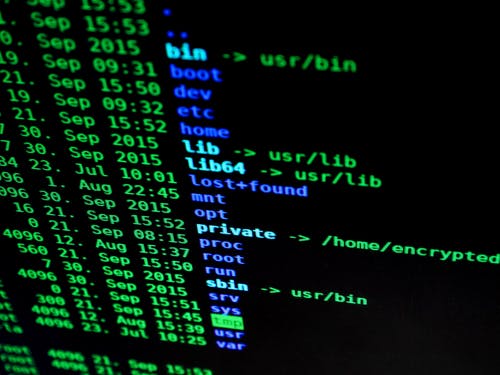Cybersecurity is one of the main ways that businesses can protect themselves from cyber attacks, and it is used to keep safe the data stored and processed on devices such as computers, laptops, tablets, and smartphones for this reason many companies rely in specialized firms when they need help with SOC 2 compliance or any other kind security audit.
We round up some of the most important cybersecurity strategies below, and how to get started with each.
Understand Your System
As part of setting up a successful cybersecurity system, you first of all need to understand your existing system in order to assess its vulnerabilities. Learn about your business’ hardware, software, and network processes, in order to progress to thinking about threat analysis: this means identifying where a threat could come from, and the severity of the risk it poses. Once this has been done, you will be in the best place to procure a cybersecurity model that suits your business’ needs, and will provide the best form of protection.
Repeat this process at regular intervals, especially if your business changes or scales up, to ensure that security remains optimum.

Create a Security Culture
Given that the majority of serious data breaches have been the result of human error, making sure that your business has a strong overarching security culture is of paramount importance. Get on top of this by, first of all, putting training in place for all staff to highlight security protocols and the importance of safeguarding data and sensitive information.
Regular email reminders may serve you well, too, as could unannounced training that involves sending a ‘faux’ malicious email, to find out how many staff would raise the alert in the event of receiving it.
Raising staff awareness of the dangers and impact of a security breach is a low-tech strategy, and yet could be literally worth its weight in gold.
Protect Mobile Devices
Ensure that mobile devices are protected from potential security breaches by requiring password protection, and encryption on each unit. You should also install a security app for extra data safety. Having a plan in place regarding what to do if a device is lost or stolen is really important, and will help you to move quickly to mitigate or prevent any potential security breaches that result from these scenarios.
When business laptops or other mobile devices are not in use, insist that they are securely stored, and that the passwords on every device are strong and that each individual user has their own separate user account.
Check Your Payment Platform
Check with your bank or payment processing platform in order to be satisfied that the technology being used offers the highest quality validation and anti-fraud checks. You may also wish to consider ensuring that a computer used for processing financial transactions is not used for other online tasks.
Avoiding Phishing Attacks
Phishing attacks are extremely common, and are becoming increasingly sophisticated; they are therefore getting harder and harder to spot. Configuring your staff’s user accounts can help protect your business: to limit the damage that a successful malware attack can inflict, grant each employee only the lowest level of user access possible in order for them to carry out their tasks. This means that if a phishing attack gets through, the damage it can cause is limited.
Be sure to particularly protect Administrator accounts, as a hacker gaining access to this type of account can cause significantly more problems, as Network Administrators are usually able to install software, access all files on a device, and alter security settings.
Implement a Zero Trust Network
A Zero Trust Network is the next step up from a Virtual Private Network, and offers cutting edge protection for your businesses data and sensitive information. Zero Trust models begin from the standpoint that your data is at threat, and work on that assumption; they move security several jumps ahead of a network security perimeter.
Zero Trust Networks analyse and log all network traffic, strictly control network access, and verify network resources. Perimeter 81 offers an easy instal Zero Trust Network that features multi-tenant clouds and a holistic security approach that streamlines the processes around keeping precious business data safe.
Backup Your Data
Regularly backing up your business data not only protects you from losses caused by, for example, flood or fire, but also from losses incurred by the theft of devices or hacking. Backup prevents, too, the potential of being blackmailed by ransomware attacks.
To get started, identify the information that is essential to your business. Next, however you choose to store this data, make sure it is on a separate device from your business’ other computers - even a local network connection is not advisable. Staff should not be able to access this backup data, and a cloud storage platform could be the best option for this.
Easy Ways to Guard Against Malware
If you run a small business on a budget, there are some easy and inexpensive ways to guard against malware:
- Instal antivirus software and keep it running and updated
- Make sure that staff aren’t able to instal apps on business devices
- Keep your computing devices up to date by using patching where required
- Prevent unauthorised USB sticks being used - consider blocking access to physical ports
- Most operating systems come with a firewall facility - ensure it’s switched on and running at all times
Securing Your Business’ Future
Having a holistic cybersecurity policy in place is one of the most important things you can do to protect your business. As well as guarding against the loss of valuable data, and the catastrophic financial consequences this can cause, it also offers you peace of mind, and best positions your business in our increasingly digitized world.







